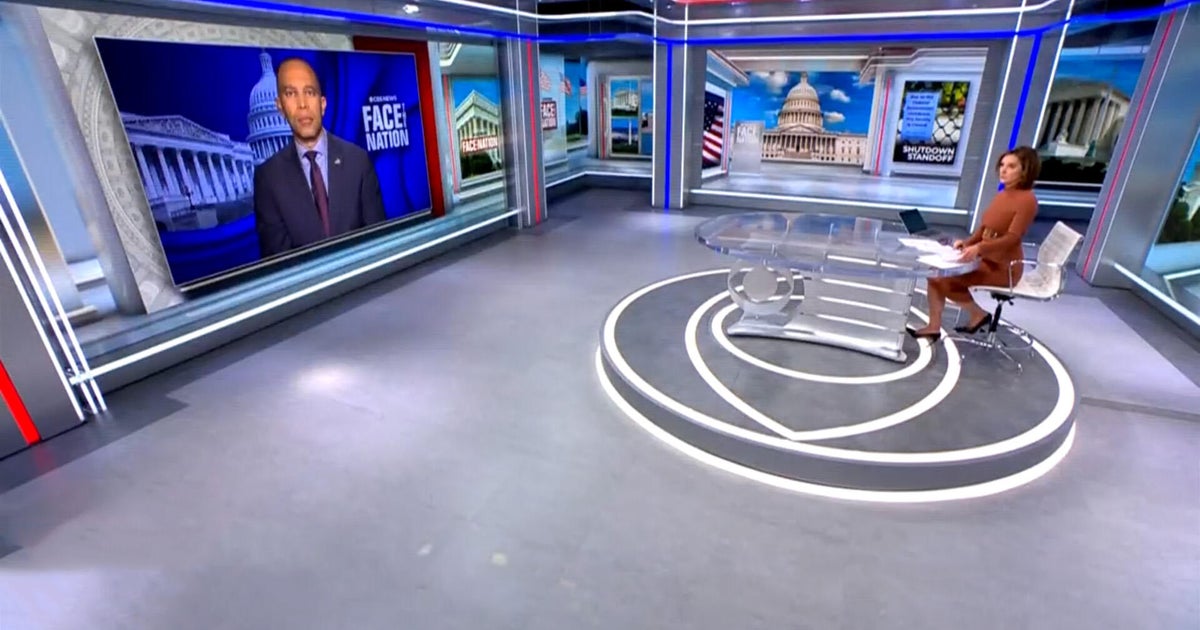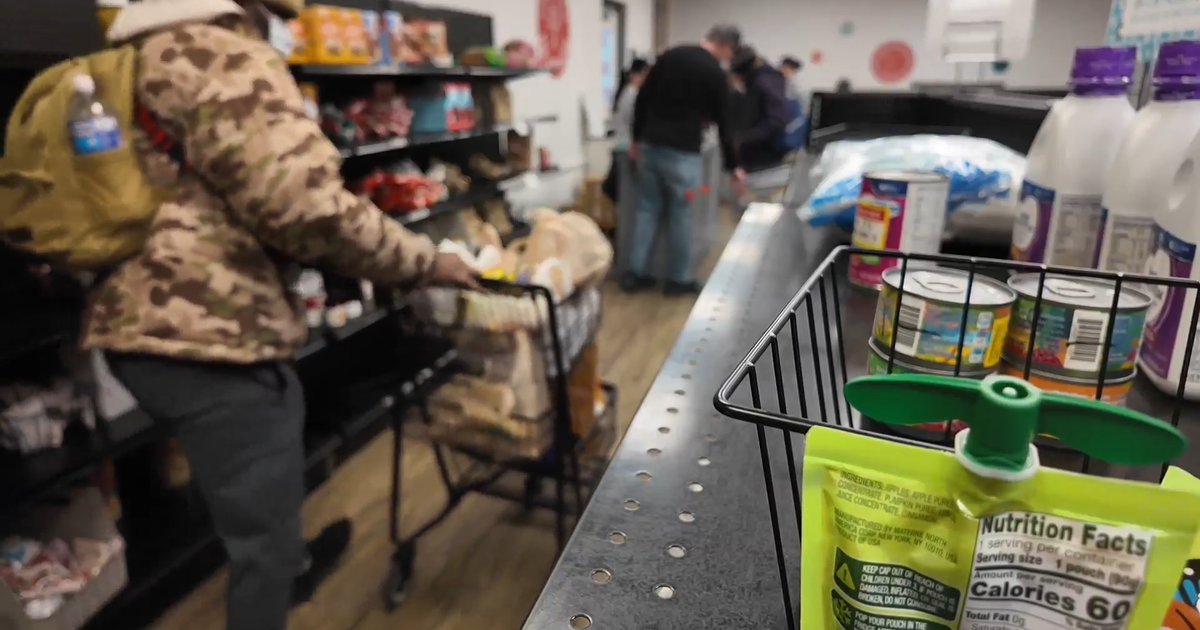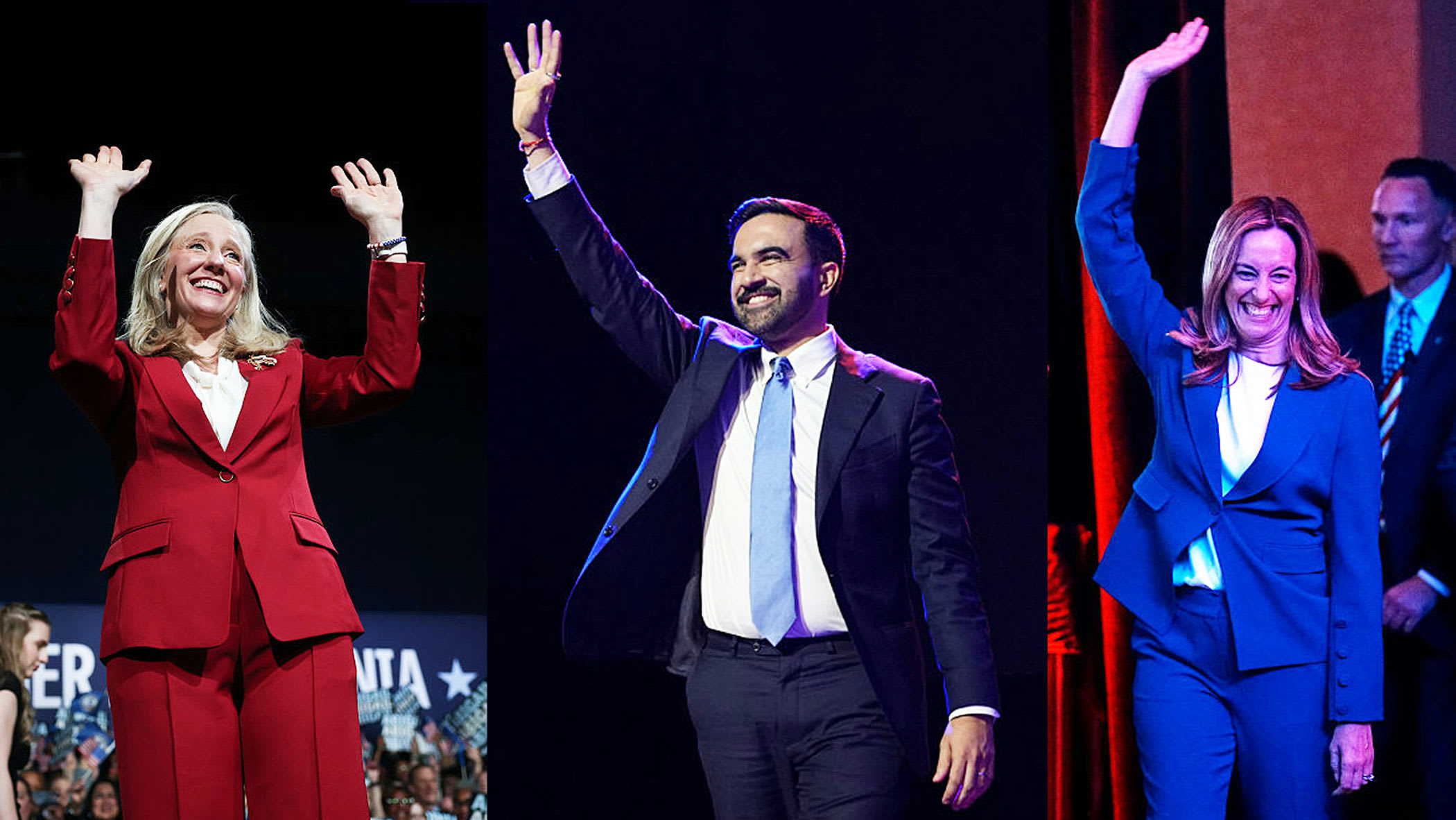Transcript: Georgia Secretary of State Brad Raffensperger on "Face the Nation," January 9, 2022
The following is a transcript of an interview with Georgia Secretary of State Brad Raffensperger that aired Sunday, January 9, 2022, on "Face the Nation."
MARGARET BRENNAN: Since the 2020 elections, Georgia has become ground zero in the fight over election integrity. The state's Republican Secretary of State Brad Raffensperger joins us now from Atlanta. Good morning to you, Mr. Secretary.
GEORGIA SECRETARY OF STATE BRAD RAFFENSPERGER: Good morning.
MARGARET BRENNAN: Just to remind our audience, you became known nationally in the wake of that election because you refused to succumb to pressure from President Trump when he specifically asked you to quote, "find 11,780 votes." President Biden, of course, won that state by 11,779 votes. Now you're up for re-election and you are being primaried by a Republican congressman who objected to even certifying the president's victory. I wonder, do you fear that in the future, Republican officials in your state may try to change the outcome of an upcoming election for purely political purposes?
RAFFENSPERGER: Well, the person I'm running against, Congressman Hice, he's been in Congress for several years. He's never done a single piece of election reform legislation. Then he certified his own race with those same machines, the same ballots. And yet for President Trump, he said, you couldn't trust that that's a double minded person. And as a pastor, he should know better. So, I'm going to run on integrity and I'm going to run on the truth. I don't know what he's going to run on.
MARGARET BRENNAN: But to that point is the level of what's at stake here, the possibility that an election outcome in your state could be manipulated.
RAFFENSPERGER: The laws that we have in place, there have been concerns raised, but no. The results will be the results, and those will be the results that will be certified. You cannot overturn the will of the people and so that won't matter. But at the end of the day, I will be reelected, and he will not be.
MARGARET BRENNAN: Well, let me ask you about something that the former president claimed this week, which once again he says there was fraud in Georgia. He said people were being paid $10 for their ballots. I know that asking a third party to drop off your absentee ballot, something called ballot harvesting, is illegal in the state of Georgia. But I wonder, has there been any evidence that any of those ballots were actually fraudulent or cast by ineligible voters?
RAFFENSPERGER: It is an ongoing investigation; what I can tell you is that we just got that information over Nov. 2021, a year after- over a year after the election, so I'd like- we'd like to wish we would have gotten a whole lot sooner, but we've opened up an investigation. But no one has alleged that those are fraudulent ballots. Those were lawful voters. And the allegation is that then they were collected and delivered by a person. But that's one thing that I do think we need is to make sure that nationwide there should be a law that bans, you know, ballot harvesting. I don't think that ballot harvesting is good. The only person I should touch your ballot is you, and the election official. So, I think that's one a solid election reform measure. Number two, I think that we should have a constitutional amendment, a U.S. constitution amendment that only American citizens vote in our elections. I think we should have also photo of I.D.. We now have a photo I.D. for all forms of voting in Georgia--
MARGARET BRENNAN: Only U.S. citizens do currently vote in elections but go on.
RAFFENSPERGER: But we don't have a constitutional amendment. Now you see cities are trying to push noncitizen voting, and I believe that only American citizens should be voting in our elections, that is supported by a wide variety- a wide majority of all Americans, just like photo I.D. supported by all demographic groups and a majority of both political parties. And that's what they've been using in Minnesota for over 11 years for their absentee balloting. So that's another, you know, solid common sense federal reform measure if they really want to get serious about election reform.
MARGARET BRENNAN: I assume there you're referring to the President and the Vice President will be traveling to your state in the coming days. They are doing so to campaign for two laws: the Freedom to Vote Act and the John Lewis Voting Rights Act.
RAFFENSPERGER: Right, and–
MARGARET BRENNAN: The Freedom to Vote Act actually does promote a national standard for states that have an ID requirement for in-person voting. You could use a bank statement or utility bill. I wonder, why do you think Republicans–
RAFFENSPERGER: It does not have- it does not have photo I.D. and photo I.D. is the most secure way of using and making sure that you can identify who the voter is, and I think that's very important. And then they also want same day registration, and that's just, you know, very difficult for any election official to manage. And I think that undermines trust in elections. And right now, we need to restore trust wherever we can. In Georgia, we've been fighting this- this theme of, you know, stolen election claims from Stacey Abrams about voter suppression, and then 2020 was about voter fraud; both of them undermine voter trust.
MARGARET BRENNAN: They may both undermine voter trust, but I'm sure you draw a distinction between someone who doesn't hold any kind of office and the president of the United States actively putting pressure on you to find and manufacture votes. They're not equivalent.
RAFFENSPERGER: Jan. 6 was terrible, but the response doesn't need to be eliminating photo ID and then having same day registration. And if you don't have the appropriate guardrails in place, then- then you're not going to have voter confidence in the results. In Georgia, we've actually increased the number of days of early voting. We have more early voting now than New York, New Jersey and Delaware.
MARGARET BRENNAN: No, I understand. But when you were talking about Stacey Abrams, I was just acknowledging that there is a difference that she didn't call on people to attack the State Capitol when she was questioning the outcome of the 2018 gubernatorial race.
RAFFENSPERGER: The president is the top, you know, official that we have in our country and that obviously that positional power is just much higher than a candidate running for governor. But be that as it may, when people lose races, I think the proper thing to do is admit that you lose. And if you want to run again, by all means do so.
MARGARET BRENNAN: Understood. Georgia has a painful past with racial discrimination. And until 2013, states like Georgia had to seek some federal preclearance when it came to changing their election laws. I won't get into the details of all of it, but this is one of the provisions that the White House says is so important in the John Lewis Voting Rights Act. Do you see any merit in the idea that there needs to be more federal oversight in states that have a history of racial discrimination?
RAFFENSPERGER: Georgia has moved so far ahead, we're not where we were in 1965. And you look at we have more early voting than all these–
MARGARET BRENNAN: But this was in place until 2013?
RAFFENSPERGER: I know, and I think that we have shown that Georgia has fair and honest elections. We have record registrations. We have record turnout. Anyone that wants to vote in Georgia has tremendous opportunities to vote early, vote with no excuse absentee voting with photo I.D., and then also show up on Election Day. And I'll compare our record against the other states. In fact, we were just recognized by Heritage as the number one state for election integrity.
RAFFENSPERGER: Well by heritage. And I think the public will hear a different version when they- the President goes to your state. And that's why we want to talk to you today. Mr. Secretary, thank you for your time.





